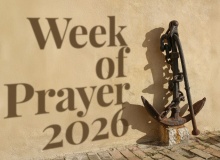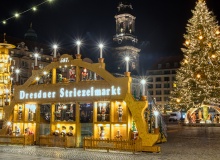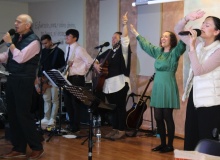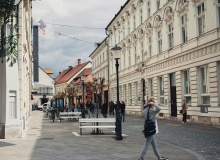



From 11 to 18 January, Evangelical Alliances in Europe, led by the Italian Alliance this year, invite churches to pray together through Psalm 78.

Many homes, businesses, and church buildings are under water. Local congregations are helping where possible, but the scale of the damage exceeds their limited resources.
.png)
With 33,200 articles by more than 520 authors, we celebrate another year with a team and contributors who have limited resources but plenty of enthusiasm. Friends in various countries make ‘Evangelical Focus’ possible.
.jpg)
Trump’s military operation to capture Maduro leaves many questions unanswered. Most Venezuelan evangelicals abroad express hope.

The evangelical Christmas service celebrates 20 years of broadcasting on Spanish public television with Christmas carols, special numbers and a message by pastor Marcos Vidal.

The latest update from the Observatory of Religious Pluralism reveals a growing presence of religious minorities within Spain's increasingly pluralistic religious landscape.
Tariffs, the dangerous real impact of ‘fakes’, the new Pope, statistics on the growth of evangelicals... And Trump. Here are the most read articles from Evangelical Focus in 2025.
.jpg)
The ‘My voice, My choice’ resolution is adopted by a majority of the EU parliament. A Christian MEP says “it is painful to see that the majority of the European Parliament does not recognise that unborn life need protection”.

In the trial at the Provincial Court of Madrid, the pastor is accused of having diverted funds collected by church members for private use without the congregation’s knowledge.

The festival, ‘Murcia, with one voice for Christmas’, brought together evangelical churches and general audience, with music, gospel, theatre, and a public message of hope.

A new IFES report on Generation Z, aims “to offer practical frameworks for ministry adaptation and intergenerational collaboration in our rapidly evolving global student context”.
.jpg)
The ‘Global Voice Report’ of the Lausanne Movement addresses the expectations of over one thousand Christian representatives in 119 countries.

The Bibel TV initiative aims to “bring back everyday conversations about God” and reaches both cities and villages.

Several players from the leading Champions and Premier League team openly share their Christian faith in public. “I love it, I think it’s phenomenal”, says Arsenal head coach, Mikel Arteta.

Places of worship in the southwestern German state suffered damage worth over a million euros. The figures are “stable overall”, says the government.
Student Bible Groups (GBE) started out in Spanish secondary schools in 1975. We talk to its national coordinator, Jonatán Espinosa, on the 50th anniversary of the ministry.
.png)
Stephan Maag walks through cities across the continent starting conversations about faith. In Monaco, the police detained him and forced him to leave without giving convincing explanations.

Over 60% of Maasai girls suffer genital mutilation in Tanzania. The Maasai Rescue Ministry, founded and led by an evangelical pastor, shelters, cares for and educates them.

After the attack on the Magdeburg Christmas market last year, that killed 6 people, “the shock and grief drew many people to churches”, say evangelical leaders.

The initiative seeks to raise awareness of religious diversity in the city through open days and various activities organised to present their beliefs.
.jpg)
Joint worship services in dozens of municipalities could be a catalyst for greater collaboration between churches on the ground, says the CNEF.

The parliament drafts the law with the aim of complying with the the European Union standards. Faith groups say that the law goes beyond equality between men and women, promoting ideological issues.
.jpg)
The Court of Justice of the EU has ruled in favour of two men who married in Germany but whose legal union was not recognised in Poland.

Although the law was passed in July, a campaign led by conservative groups and medical associations gathered 46,000 signatures to force another referendum.

The Observatory on Intolerance and Discrimination against Christians in Europe also reports a rise “in legal restrictions affecting freedom of religion”.

Las opiniones vertidas por nuestros colaboradores se realizan a nivel personal, pudiendo coincidir o no con la postura de la dirección de Protestante Digital.